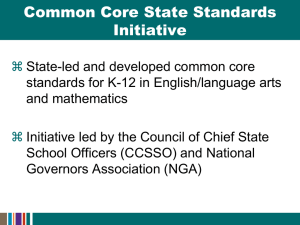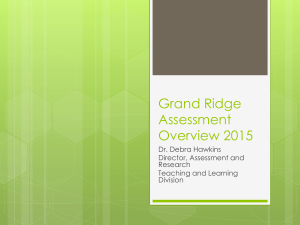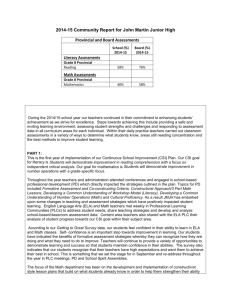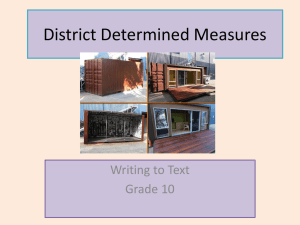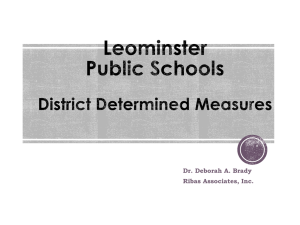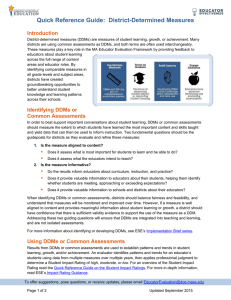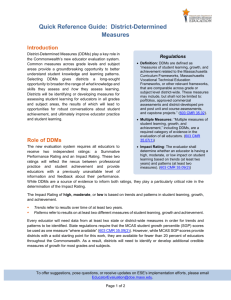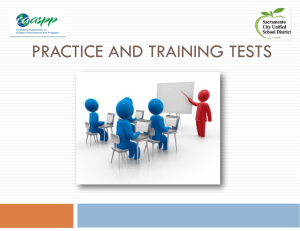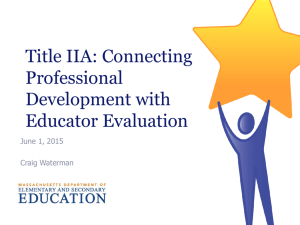Professional Practice Innovation Grant (Fund Code 213)
advertisement
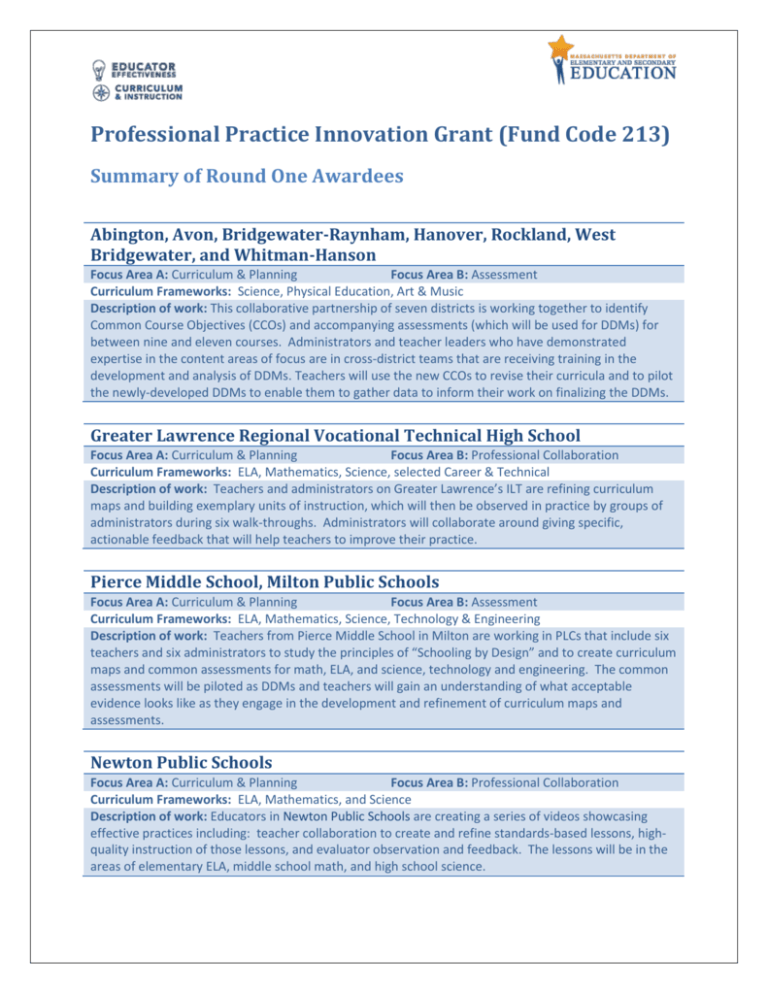
Professional Practice Innovation Grant (Fund Code 213) Summary of Round One Awardees Abington, Avon, Bridgewater-Raynham, Hanover, Rockland, West Bridgewater, and Whitman-Hanson Focus Area A: Curriculum & Planning Focus Area B: Assessment Curriculum Frameworks: Science, Physical Education, Art & Music Description of work: This collaborative partnership of seven districts is working together to identify Common Course Objectives (CCOs) and accompanying assessments (which will be used for DDMs) for between nine and eleven courses. Administrators and teacher leaders who have demonstrated expertise in the content areas of focus are in cross-district teams that are receiving training in the development and analysis of DDMs. Teachers will use the new CCOs to revise their curricula and to pilot the newly-developed DDMs to enable them to gather data to inform their work on finalizing the DDMs. Greater Lawrence Regional Vocational Technical High School Focus Area A: Curriculum & Planning Focus Area B: Professional Collaboration Curriculum Frameworks: ELA, Mathematics, Science, selected Career & Technical Description of work: Teachers and administrators on Greater Lawrence’s ILT are refining curriculum maps and building exemplary units of instruction, which will then be observed in practice by groups of administrators during six walk-throughs. Administrators will collaborate around giving specific, actionable feedback that will help teachers to improve their practice. Pierce Middle School, Milton Public Schools Focus Area A: Curriculum & Planning Focus Area B: Assessment Curriculum Frameworks: ELA, Mathematics, Science, Technology & Engineering Description of work: Teachers from Pierce Middle School in Milton are working in PLCs that include six teachers and six administrators to study the principles of “Schooling by Design” and to create curriculum maps and common assessments for math, ELA, and science, technology and engineering. The common assessments will be piloted as DDMs and teachers will gain an understanding of what acceptable evidence looks like as they engage in the development and refinement of curriculum maps and assessments. Newton Public Schools Focus Area A: Curriculum & Planning Focus Area B: Professional Collaboration Curriculum Frameworks: ELA, Mathematics, and Science Description of work: Educators in Newton Public Schools are creating a series of videos showcasing effective practices including: teacher collaboration to create and refine standards-based lessons, highquality instruction of those lessons, and evaluator observation and feedback. The lessons will be in the areas of elementary ELA, middle school math, and high school science. Northampton, Belchertown, Gill-Montague, Hadley, South Hadley, and the Berkshire Hills Regional District Focus Area A: Curriculum & Planning Focus Area B: Assessment Curriculum Frameworks: ELA and Technology Literacy Standards and Expectations Description of work: A collaborative partnership of six districts is pooling collective resources and knowledge to select and analyze pilot DDMs that will serve to inform and strengthen both curriculum and instruction and educator evaluation decisions. The districts are also collaborating on building an online resource bank that will house the DDMs themselves, as well as accompanying annotated student work samples, and a forum for teacher discussion and feedback about the DDM implementation and resulting data. The resource bank will assist teachers in collecting and annotating evidence and artifacts. The districts have chosen to pilot this work in two areas – Grade 10 Writing-to-Text and Grade 6 Technology and Proficiency, with a particular focus on English Language Learners. Watertown Public Schools Focus Area A: Curriculum & Planning Focus Area B: Diverse Learners’ Needs Curriculum Frameworks: ELA and Mathematics Description of work: A collaborative team of teachers and administrators are creating unit plans and curriculum-embedded performance assessments that will later be piloted as DDMs in elementary ELA and math. These curriculum maps will be the foundation of the Tier 1 curriculum, from which ELL and SPED teachers will work to then identify instructional practices and accommodations that best support the needs of diverse learners in meeting the MA Curriculum Frameworks.
